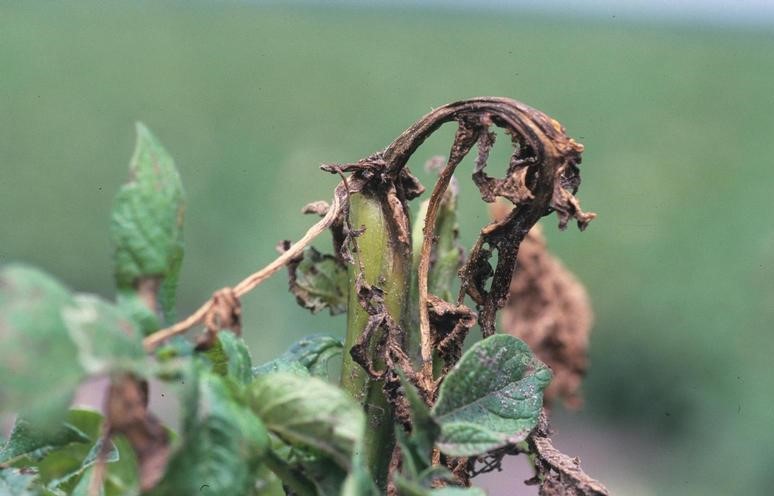
Insights into Spongospora root diseases and its management
16 April 2020
Tomato spotted wilt virus: A very sporadic, but destructive potato disease
17 April 2020The build-up of waste products and unwanted materials on a farm can cause headaches for vegetable growers, particularly if they are plastic-based. The effective management and disposal of these products formed the focus of a project that was completed in 2015, as reported in Vegetables Australia.
As is the case on many farms, vegetable production can result in large amounts of waste and unwanted materials that are difficult for growers to dispose of appropriately. This is particularly true for materials such as plastic mulch sheeting and plastic irrigation pipe, which present some challenges for disposal and recycling when they are no longer required.
Given that burning or burying plastics is illegal and difficult to monitor in regional areas, alternative solutions must be developed for growers. Given this, a research project entitled Innovative ways to address waste management on vegetable farms was conducted to enable the Australian vegetable industry to consider alternatives to plastic use and recycling, and ultimately contribute to the continuous improvement in farm management practices, efficiency and sustainability.
Led by RM Consulting Group (RMCG) with the assistance of waste management specialist DJR Consulting, the project engaged with growers and the wider vegetable industry, as well as plastic providers and processors, to determine the extent of the problem in different growing regions throughout Australia and identify potential solutions.
“There has been a growing interest in on-farm management of plastic waste. It’s something that growers would like to be able to deal with, but they need an easier way to do it,” RMCG Senior Consultant Economist Kym Whiteoak said.
The research project primarily focused on the use and disposal of plastic mulch and plastic irrigation equipment on vegetable farms, which pose a significant problem in consolidated areas of horticulture, particularly in south east Queensland and Victoria.
“What became clear is that there are supply chains that exist for plastic processing in some areas. For drip and permanent irrigation, there are recycling options but they mostly exist in areas near ports and processing plants to make it more cost-effective,” Mr Whiteoak explained.
“The main exception is plastic mulch, as you often can’t send it to landfill because it is so voluminous. The actual plastic is suitable for re-processing and recycling, but because of the contaminant load and its size, the transport costs are high for a relatively small tonnage. It’s a problem that hasn’t been resolved yet but there are people working on it.”
While technological solutions to effectively decontaminate plastic mulch for processing are currently underway, another possible option is to use biodegradable or photodegradable options. However, the labelling of these products is not always clear and there are unresolved issues about the impact of photodegradable plastics on the surrounding environment.
Mr Whiteoak noted that growers using a larger share of plastics, especially plastic mulch, were particularly interested in a low-cost solution to their plastic management problems. As a result, the project looked into the cost-effectiveness of different disposal options for plastic mulch.
“Starch-based, biodegradable mulch is currently the most expensive option and photodegradable plastic mulch is even cheaper than illegal disposal. However, this data suggests that we need to have a clearer understanding of its practical limitations and environmental impacts,” he said.
Possible solutions
The report provided a range of recommendations, which included grower and industry participation in state-based environmental organisations. It also advised plastic processors to work with the vegetable industry to develop fit-for-purpose plastic products that meet their needs.
“From a grower’s perspective, they need to be aware of some of the regional plastic processing solutions available. If they’re thinking of using an alternative plastic product, such as photo-degradable plastic, they need to know enough information about it and its potential implications,” Mr Whiteoak added.
“From a research point of view, we need to find out the impact of photo-degradable plastic products on the environment and consider investing in recycling technology. It would also be good to have some extension material with more information about the possible options and their potential implications.”
Find out more
A full project report is available on InfoVeg.
Innovative Ways to Address Waste Management on Vegetable Farms – Plastics was a strategic levy investment under the Hort Innovation Vegetable Fund.
This project was funded by Hort Innovation using the vegetable research and development levy and contributions from the Australian Government.
Project Number: VG13109

